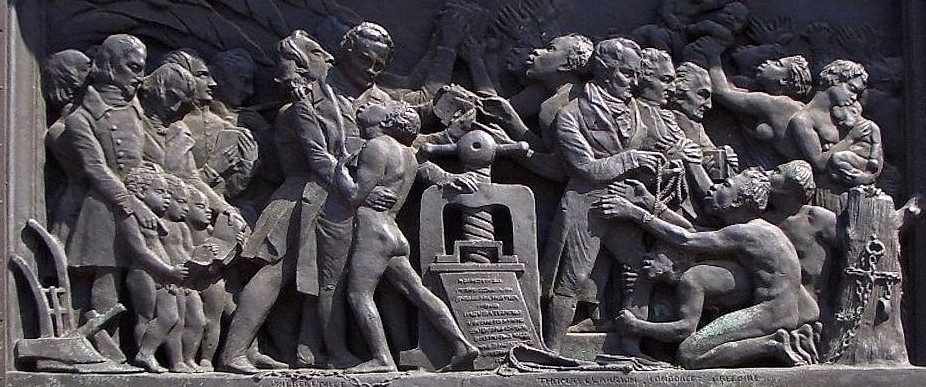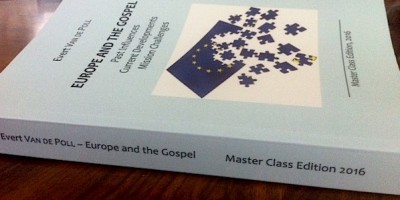The second of four weekly excerpts from the Masterclass text, Europe and the Gospel, by Professor Evert Van de Poll. This special edition can be obtained via Schuman Resources.
EVdP: The legacy of Christianity is not altogether glorious. The negative record of Christians is always a hindrance for evangelism, but nowhere is the criticism levelled against Christianity as strongly as in Europe.
Europe is marked by the influence of Christianity, but not always in a positive way. Sometimes Christianity is discredited as far as its place in the public sphere is concerned. Many hold to the opinion that it is alright for people to practice their faith in the private sphere, but don’t want the church to dominate the public sphere, or influence the political debate.
Much harm has been done in the name of Christianity, but also Christians were often the first to speak out in protest. We should not overstate the case by emphasising only the positive side while underestimating the notorious role it has often played. It is a matter of intellectual honesty to recognize sins, to rectify false teaching, and to ask forgiveness for the wrong that has been done.
Cardinal Walter Kasper says: Besides the magnificence of Europe, there is also the misery and the shameful history of Europe. Europe has often betrayed its high ideals: in the crusades, in the religious wars, in the colonising of other peoples, in two world wars and at least in the Shoa, the destruction of European Jewry. Theses dark sides of our history have contributed to an uncertainty of our identity.
However, when we admit the complicity of the church in the shameful events of the past, we should also recognize the Christian counter movements and individual voices that spoke out against it, in the name of faith. The cross was the supporting beam of the power structures of states in alliance with the church, but at the same time it was the thorn in the flesh of those who used their power for their own interests only.
The French historian, Jacques Dalarun, remarks on this: We should not forget that the Church in the past has often been subservient to the established powers, but time and time again there was a return to the Gospel which put Christians in opposition to a society where people were treated unequally, on the basis of birth or physical power. On the one hand, there was the world of warriors and princes where people were heavily dominated. On the other hand, there were the monasteries, where the abbot was the servant of all servants. One could say that these were two opposing models. In reality, they created a tension, a permanent dialectic.
Dalarun shows that the monasteries developed a form of democracy, based on the model ‘to govern is to serve.’ ‘We cannot just jump from the Enlightenment to Antiquity, and say that the Church in the meantime has contributed next to nothing to modern democracy,’ he argues.
To this we should add the forms of governance developed by followers of the Protestant Reformers in the Netherlands during the seventeenth century. In their model, the prince did not have absolute power; he could govern in collaboration with the representatives of property-owning citizens. This model influenced Enlightenment thinkers as they developed their ideas of representative democracy.
While we can blame Christians for being compliant with power politics, intolerance and the like, we should also give credit to Christians who have been inspired by the Gospel to take alternative positions.
Five accusations levelled against European Christianity (include:)
• Intolerance and freedom – (While) the church and the state worked together to develop a corpus christianum, the seeds of the Gospel were gradually yielding fruits of individual freedom, equality, and brotherhood based on respect for the innate value of each individual.
• Colonialism – European Christianity is often put on the side of colonialism (and) imperialism. (Yet) missionaries were also the first to recognize the value of indigenous cultures, to defend the rights of indigenous peoples, and to oppose greedy exploitation.
• Slavery and abolitionist movements – While many church leaders collaborated (with slavery), others resisted. The seeds of human dignity and ‘love your neighbour as thyself’ began to yield the fruit of a movement calling for the abolition of slavery.
• Capitalism and Christian social movements – (While the Church) fostered capitalism and accepted the conditions of the Industrial Revolution, contributing indirectly to its negative effects, it played an active role in putting an end to social injustice (and) social and economic distress.
• Anti-Semitism and solidarity with Jews – While the church has practiced anti-Judaism, some of her members have emphasised that the Jews are still God’s chosen people and that they be should be respected as such.
European Christianity has done considerable harm, yet by and large Christianity has been a blessing for Europe.
(c) Evert Van de Poll: Europe and the Gospel
Till next week,



